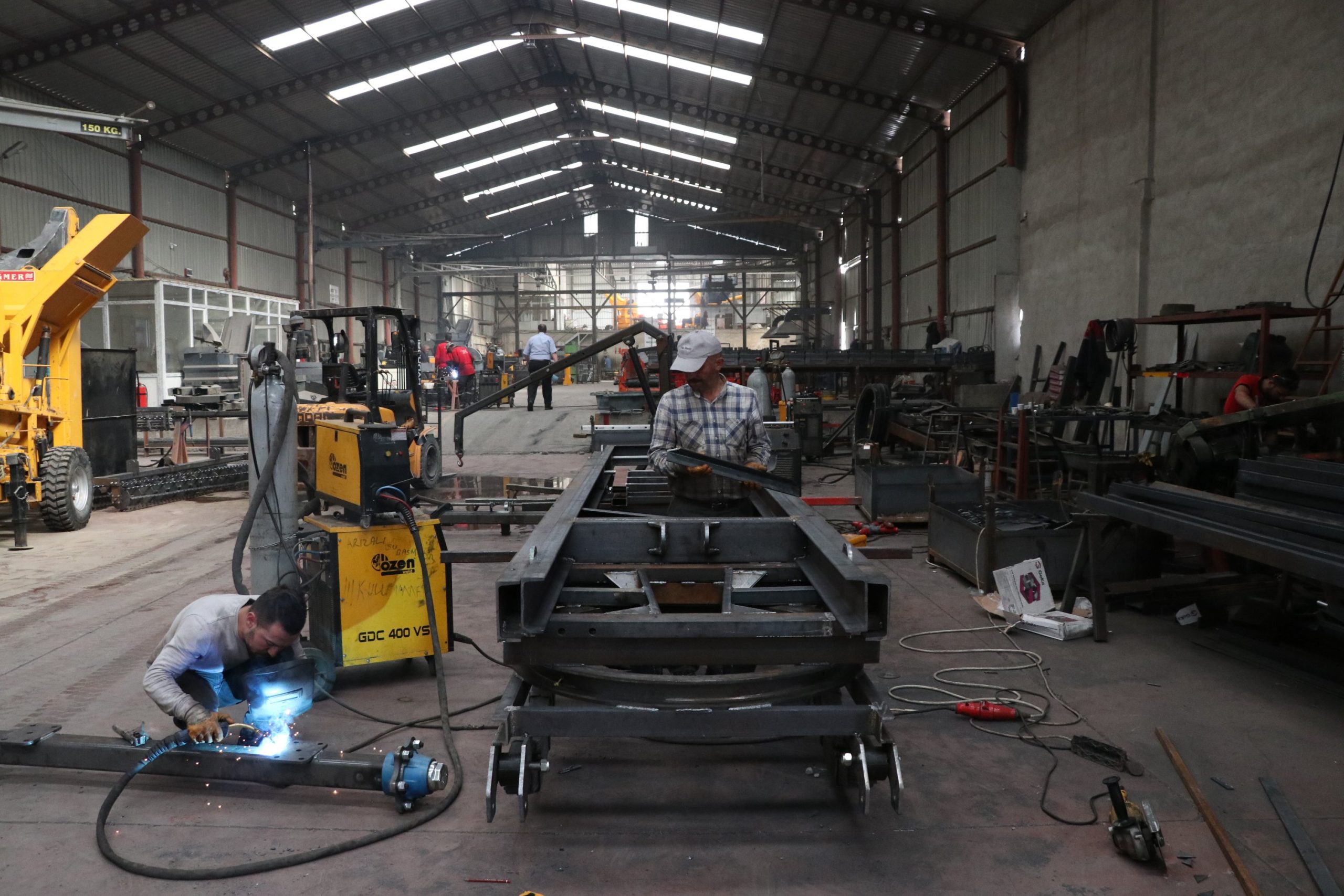Turkey is one of the countries that stands to gain the most from a shift of supply chains amid the coronavirus pandemic and could emerge stronger from the COVID-19 crisis, according to the president of the European Bank for Reconstruction and Development (EBRD).
“One of the most important consequences of the pandemic and the disruption it has inflicted on global supply chains is much greater scrutiny of supply chains,” Suma Chakrabarti said Wednesday, addressing a virtual meeting held by the Foreign Economic Relations Board of Turkey (DEIK), urging the Turkish private sector to seize opportunities following the outbreak.
The coronavirus pandemic has forced companies to put considerable emphasis on the resilience and diversification of their supply chains, Chakrabarti said. “They will have to do so to survive, to recover, to flourish,” he added.
“Turkey, with its strong potential to significantly scale up exports, is one of the countries that stand to gain most from this new dynamic,” the EBRD president noted.
An EBRD study found that of over three dozen countries where the bank invests, Turkey has a “revealed comparative advantage” (RCA) in 189 product groups, the largest of any country in the EBRD regions.
RCA, defined as the ratio of a product’s share in a country’s total exports and the share of that product in global trade, helps measure the extent to which countries could benefit from a shift of supply chains away from China, currently the dominant global supplier.
Turkey has the highest number of product groups – some 189 – enjoying good “revealed comparative advantage,” Chakrabarti said. “There is clearly scope here for trade diversion, particularly as Turkey has a significant delivery deadline advantage over the Far East.”
In light of this, he called on the European Union to update its Customs Union agreement with Turkey, a goal long sought by Ankara.
“In a world of increased regionalization of economic activity, shortening supply chains and geopolitical uncertainty, and the development of closer relationships between Turkey and the EU would benefit both parties,” he argued.
Serious challenge
Chakrabarti underlined that the coronavirus pandemic is the most serious challenge the EBRD region has ever faced.
“The pandemic hit Turkey at a difficult time. The economy was recovering from the 2018 volatility of the lira (currency) quite well but remained fragile,” he said.
Touching on the bank’s 21 billion euros ($23.5 billion) COVID-19 Solidarity Package, Chakrabarti said the EBRD is committed to all activities to cushion the impact of the pandemic and support economic recovery.
The bank provided some 1 billion euros to Turkey’s banks and companies operating in the infrastructure, industry, commerce, agribusiness and energy sectors for COVID-19 response projects, he highlighted.
“And on top of the financial support, we will be providing advice on policy reforms that assist governments and benefit the private sector,” Chakrabarti said.
He also reconfirmed the EBRD’s strong commitment to Turkey, which is the bank’s top destination and where it has invested around 12.4 billion euros over the past decade through nearly 320 projects.
“For four years in a row Turkey was our largest country of operations and it is still the one where we achieve the highest transition impact,” Chakrabarti said, adding that ties between Turkey and the EBRD “will grow even closer.”
“We have been with you in good times and in the more challenging times of the past several years, supporting the economy after the coup attempt and now responding immediately and strongly to the needs of the Turkish corporate sector and the banking system,” he said.
Calling Turkey pivotal in linking East and West thanks to its location and its knowledge and successful experience of transition, Chakrabarti said the bank’s experience in the country was a major factor in its success in the Southern and Eastern Mediterranean.
‘Turkey never so important as now’
Also speaking at the meeting, Nail Olpak, head of the DEIK, highlighted that as Turkey is at the meeting point of two worlds, the country is a melting pot of cultures, an industrial hub and a key gateway between the East and West.
“But it has never been more important than now. The upheaval caused by the ongoing pandemic has highlighted the fragility of the global economy and the supply chains on which it depends,” Olpak said.
Saying that recovery from the coronavirus crisis will take a long time, Olpak added that it will also require strong partnerships such as the one between Turkey and the EBRD.
He said Turkey offers advantages of production quality and has policymakers keen to improve the country’s investment environment. Turkey’s action plans rely on long-term sustainable economic growth, so all the economic reform programs are based on boosting production, research and development (R&D) and exports, he said.
“Undoubtedly, we will see more cooperation between the EBRD and Turkish manufacturers in this process of transformation of global production and investment activities,” Olpak said.
He stressed that access to direct, cost-effective finance will be of utmost importance for both producers and investors.
Ebru Özdemir, a DEIK board member, said there is an unprecedented opportunity to leverage this crisis to create a more resilient world.
“I am also deeply optimistic about how Turkey will emerge from this global pandemic,” she said.
Turkish companies are stepping into some of the gaps in global supply chains as a result of the COVID-19 crisis, Özdemir noted.
“We often talk about Turkey’s crucial role in European trade and investments, but today we are seeing its importance as a member of the entire global economic community,” she explained.
Last Updated on Jun 18, 2020 2:49 pm










Discussion about this post